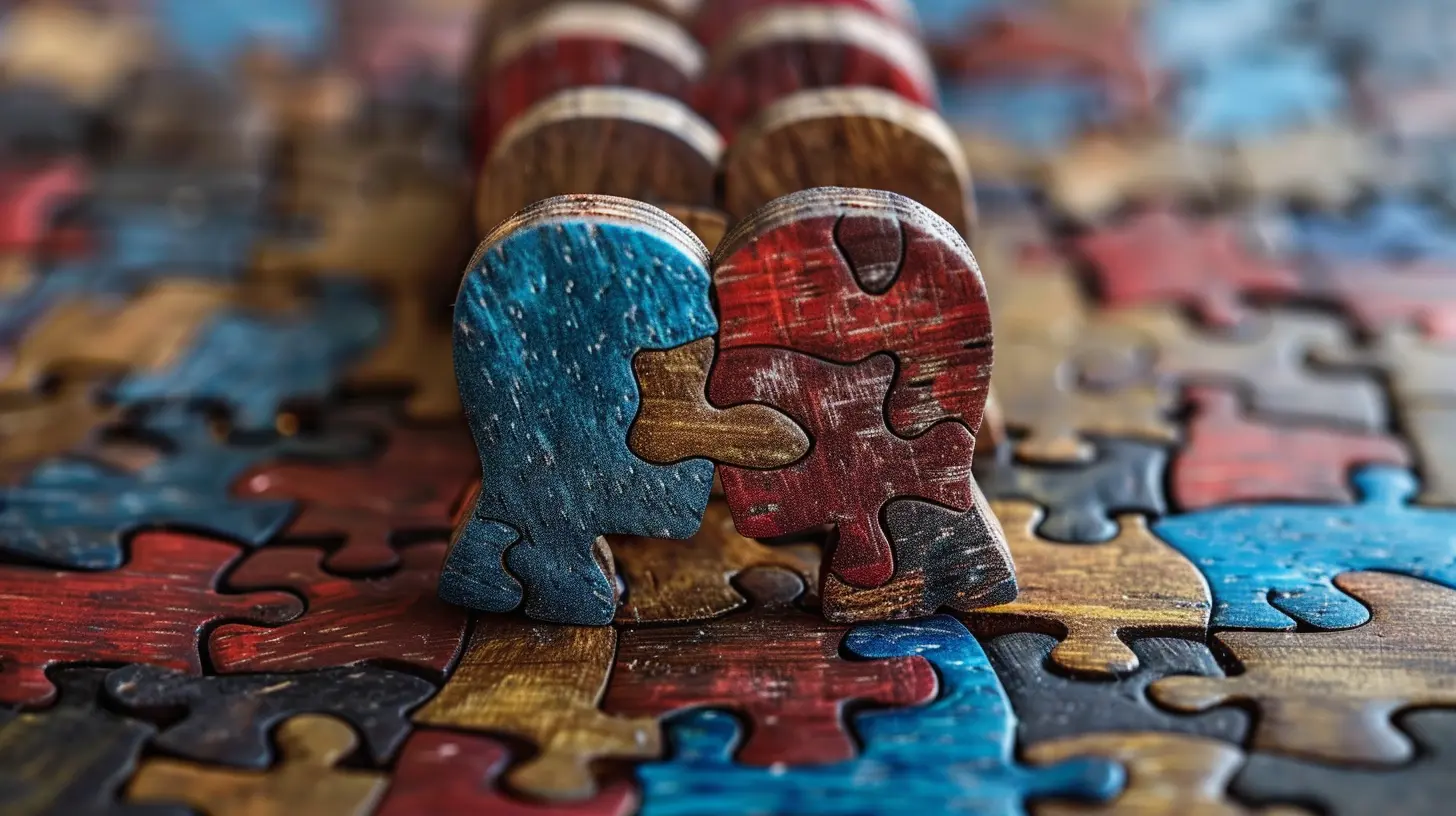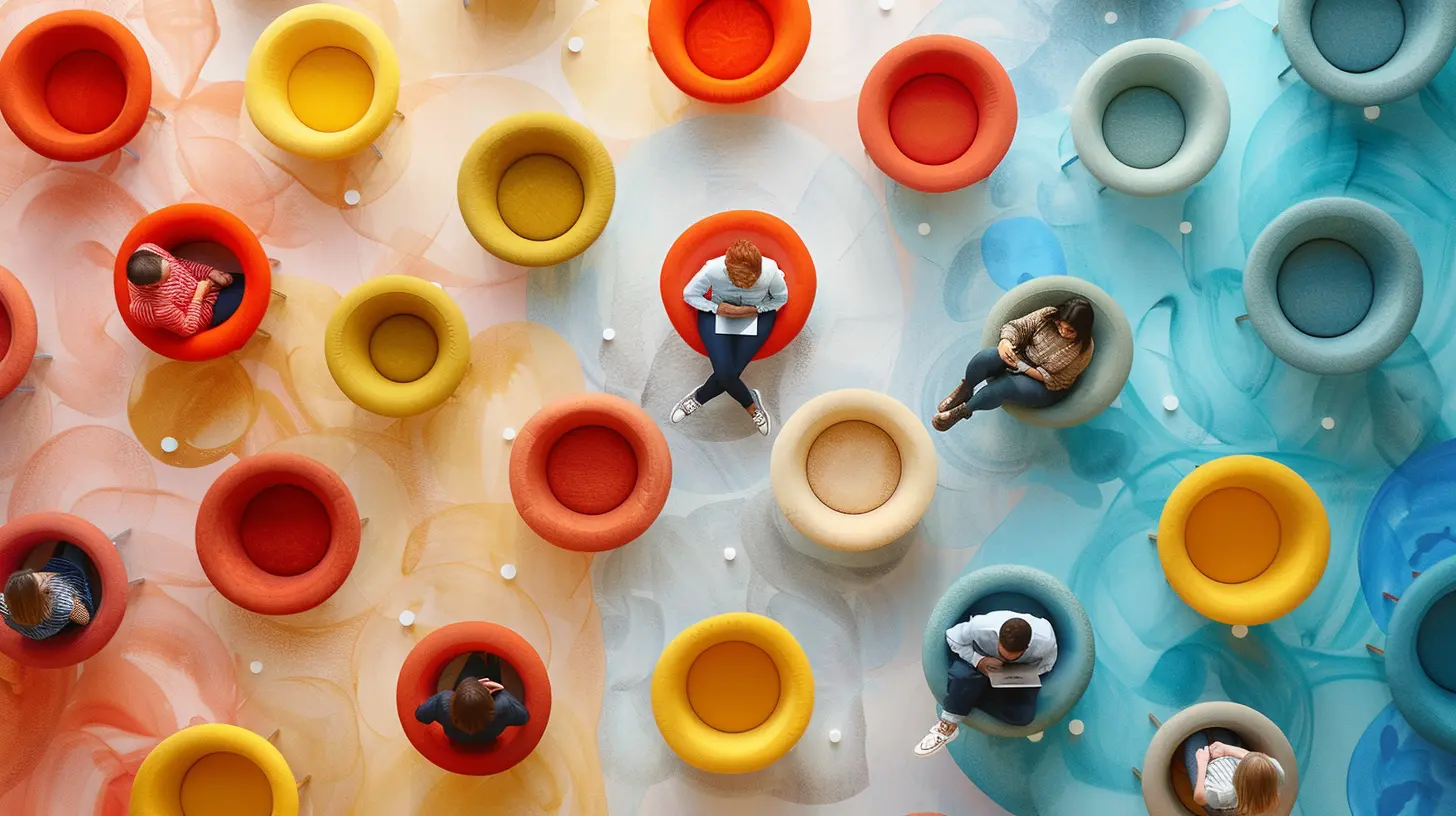The Role of Personality in Team Dynamics at Work
8 August 2025
Alright, let's be real for a second — working in a team is a bit like being in a reality TV show. You've got the silent brooder, the diva, the overachiever, the class clown, and the peacemaker, all trying to finish a project on time without flipping a table. The reason why teams can either crush it—or totally crash and burn—has a lot to do with one sneaky little concept: personality.
But before you start diagnosing Greg from accounting with a textbook narcissistic personality disorder (don’t do that), let’s break down how different personality types play out in the wild world of office life.

Why Personality Even Matters at Work
Let’s set the stage. Imagine throwing a bunch of random people into a meeting room, tossing them a deadline, and expecting them to gel like a jazz band. Without understanding each other's quirks, communication styles, or pet peeves, you’re basically rolling the dice and praying for synergy.Personality is the behind-the-scenes director of every team interaction — it influences how people solve problems, handle stress, make decisions, and vibe (or don’t vibe) with one another.
So yeah, personality kinda matters. A lot.

Meet the Big Five: No, Not Safari Animals, The Traits
Psychologists (those lovely people who make sense of our mental spaghetti) have narrowed personality down to five broad dimensions, known as the Big Five traits. Think of these as the spices in the human flavor mix:1. Openness to Experience – Love change? Creative genius? Big fan of abstract thinking? That’s you.
2. Conscientiousness – The planner. The checklist champion. The mortal enemy of chaos.
3. Extraversion – Life of the office party. Talks a lot. Often has a "fun mug" collection.
4. Agreeableness – The peacemaker. Never sends passive-aggressive emails.
5. Neuroticism – Worry-prone but often the first to see a potential problem before it blows up.
Put those traits into a team setting, and you've got yourself a personality soup. Whether it's delicious or disastrous depends on how well those flavors mix.

How Different Personalities Impact Team Dynamics
The Conscientious Crusader
You know the one. Diane from HR. Spreadsheets color-coded within an inch of their life. Always on top of things, shows up five minutes early to Zoom calls.The Upside: Keeps the team organized, meets deadlines, doesn’t forget birthdays.
The Downside: Might micromanage you into a coma. Has a meltdown if someone uses Comic Sans.
In a team, this person keeps the ship steady but might clang a few pots trying to keep everyone on task.
The Open-Minded Innovator
This is your big thinker. Brainstorms turn into TED Talks. They’re pitching wild ideas while you’re still trying to open the PowerPoint.The Upside: Amazing at generating creative solutions.
The Downside: May struggle to focus on details or finish what they start.
Pair them with the Conscientious Crusader mentioned above and boom — innovation meets execution. That’s the dream team.
The Extroverted Energizer
Ah yes, the social butterfly. Makes coffee rounds, knows everyone’s dog's name, and somehow loops you into company karaoke night.The Upside: Boosts team morale, excellent at communication, builds strong relationships.
The Downside: Might talk more than listen, needs social engagement like oxygen.
These folks are the glue in team dynamics — just maybe don’t seat them next to the introvert trying to not cry under the fluorescent lights.
The Agreeable Mediator
This is the person making sure everyone feels heard. The office “mom” or “dad,” even if they’re 23 and wear socks with pizza slices on them.The Upside: Reduces conflict, promotes harmony, great collaborator.
The Downside: Can struggle with confrontation, might agree to things just to keep the peace.
They’re essential for managing tension and keeping a team from turning into a WWE match.
The Neurotic Analyst
Our anxious overthinkers. Bless their little stress balls. They’ll point out every possible obstacle in the plan — often before breakfast.The Upside: Great at identifying risks, avoids overly optimistic pitfalls.
The Downside: Can be pessimistic, easily stressed, may cause team anxiety if left unchecked.
But hey — they can save you from launching a product with a fatal flaw. Always keep one close.

The Perks of a Personality-Mixed Team (aka Rainbow Power!)
Now, stacking a team with all agreeable peacemakers might sound peaceful, but you’ll end up with a group that never disagrees… and never makes real progress.On the flip side, a team full of extraverts can be all talk and no action. And one neurotic team? Well, they might just spiral into a panic attack over the coffee machine.
The real magic lies in diversity. Not just diversity in background or knowledge, but personality diversity. It’s like building a band — you need your drummer (steady), your vocalist (loud and confident), your guitarist (creative), and your bassist (often underappreciated but insanely crucial).
When teams blend personalities effectively, you get more creative solutions, stronger collaboration, and better results. Heck, you might even enjoy working together. Shocking, I know.
When Personality Clashes — Because They Will
Let’s not pretend it’s all sunshine and team chants. Clash is inevitable.- The extrovert may see the introvert as standoffish.
- The conscientious planner might label the open-minded dreamer as flaky.
- The neurotic perfectionist could drive the laid-back team member up a wall.
But here’s the kicker — awareness is half the battle. Understanding that people aren’t being difficult on purpose (well… usually) but are just wired differently makes a huge difference. Empathy and personality insights can turn a "we clash" into a "we complement."
How to Manage Different Personalities in a Team
Okay, so how do we wrangle these personalities without needing a group therapy session every Friday?1. Use Personality Assessments (With a Grain of Salt)
No need for a full-blown psychological profile, but tools like the MBTI, DISC, or Big Five assessments can help everyone get a sneak peek into how their teammates tick.Just be careful not to box people in. "Sorry, I can’t help with spreadsheets, I’m a Pisces" is not a valid excuse.
2. Set Communication Ground Rules
Some people love to brainstorm out loud. Others need time to process and reply in a thoughtful email.Set clear expectations around meetings, feedback, and conflict resolution. Your introverted coworker will thank you silently.
3. Delegate Based on Strengths
Got a detail-obsessed planner? Let them handle logistics. Creative thinker? Let ‘em run wild in the ideation phase. Know your team members' strengths, and use them like tools in a Swiss army knife.4. Encourage Mutual Respect
Remind your team that no trait is “better” than another. Just because one person talks more doesn’t mean their ideas are more valuable. And just because someone is quiet doesn’t mean they don’t have anything to say.5. Build Psychological Safety
No, this isn’t a padded room — it’s just about making people feel safe to share ideas, ask questions, and be themselves without judgment.When folks feel safe, personalities shine. And when personalities shine, the team thrives. It's like emotional skincare.
The Manager’s Role: More Therapist, Less Dictator
If you’re a team leader (or just the one who accidentally got put in charge), your job isn’t just task delegation. It's personality wrangling, mood reading, and making sure no one stabs each other with a mechanical pencil.Get to know your team members beyond their Slack handles. Ask about their working styles. Observe team interactions. And for the love of office morale, listen more than you talk.
What Happens When You Get It Right?
When team personalities click, it’s beautiful chaos. You get:- Productive meetings (shockingly under budgeted time)
- Constructive feedback loops
- Fewer “I hate this job” memes in the group chat
- Increased innovation
- Reduced burnout
Basically, a team that not only works harder but works happier.
Wrapping It Up: Be the Dr. Dolittle of Work Personalities
Look, understanding personality might not seem like a KPI, but it’s a secret sauce of every high-functioning team. Whether you’re a manager, a teammate, or just someone trying to survive the Monday morning meeting, knowing how personality affects team dynamics can make your work life a whole lot easier (and less drama-filled).So go ahead — channel your inner personality whisperer. Because behind every successful project is a team of wildly different humans figuring out how to work together without losing their minds.
And maybe, just maybe, bringing donuts to meetings helps too.
all images in this post were generated using AI tools
Category:
Personality TypesAuthor:

Janet Conrad
Discussion
rate this article
1 comments
Ford McClary
This article effectively highlights how personality traits significantly impact team dynamics in the workplace. Understanding individual differences can enhance collaboration, communication, and conflict resolution. By leveraging diverse personalities, teams can foster innovation and improve productivity, demonstrating that personality is not just a personal attribute but a vital team asset.
August 25, 2025 at 2:41 AM

Janet Conrad
Thank you for your insightful comment! I'm glad you found the article highlights on the importance of personality traits in enhancing team dynamics and productivity valuable.


